IRENA
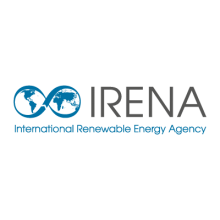
The International Renewable Energy Agency (IRENA) is an intergovernmental organisation that supports countries in their transition to a sustainable energy future and serves as the principal platform for international cooperation, a centre of excellence, and a repository of policy, technology, resource and financial knowledge on renewable energy.
|
Ready to help countries in:
- Analyzing past and future climate change scenarios;
- Developing social-economic pathway scenarios for the future;
- Assessing best available science to assess, plan & implement adaptation measures;
- Integrating adaptation into national development plans;
- Developing projects and proposals to the GCF and other funding sources;
- Managing coherence between adaptation & relevant frameworks incl. the 2030 Agenda and Sendai Framework;
- Using frontier technologies for adaptation assessments, planning & implementation;
- Engaging multiple stakeholders incl. indigenous peoples, women, youth and the private sector.
|
|
Ms. Elizabeth Press |
|
ITU
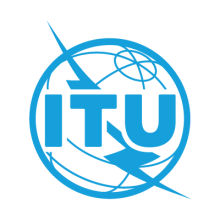
The International Telecommunication Union (ITU) is the United Nations specialized agency for information and communication technologies – ICTs. ITU is committed to connecting all the world's people.
|
Ready to help countries in:
- Accessing information/experience of other countries in applying adaptation technologies;
- Using frontier technologies for adaptation assessments, planning & implementation;
- Managing coherence between adaptation & relevant frameworks incl. 2030 Agenda and the Sendai Framework;
- Developing national knowledge & information systems to support adaptation
- planning, implementation and reporting;
- Research and systematic observations for adaptation assessments, planning
- & implementation;
- Assessing climate risk and vulnerability;
- Integrating adaptation into subnational and local development plans;
- Advocacy & education on climate change and adaptation;
- Engaging stakeholders incl. indigenous peoples, women, youth and the
- private sector.
Specific expertise includes:
- ICTs for disaster risk reduction & management, through the design of national emergency telecommunication plans, setting up early warning & monitoring systems, and providing emergency telecommunications equipment when disasters strike;
- Protecting the environment from e-waste and shifting to a circular economy for ICT equipment;
- Radiocommunications systems and applications in support of monitoring, mitigating & adapting to the effects of climate change;
- Standards that help to adapt different sectors of the economy to the impacts of climate change;
- Facilitating digital solutions for energy efficiency by reducing emissions &
- carbon footprints.
|
|
|
|
UNFPA
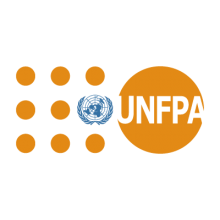
UNFPA is the United Nations sexual and reproductive health agency. Its mission is to deliver a world where every pregnancy is wanted, every childbirth is safe and every young person's potential is fulfilled.
|
Ready to help countries in:
- Research & systematic observations for adaptation assessments, planning &
- implementation;
- Enabling activities for initiating and/or launching the NAP formulation;
- Capacity building and readiness support in submitting a proposal to the GCF Readiness and Preparatory Support Programme;
- Technical assistance and advice in the process of drafting the NAP;
- Development of social-economic pathway scenarios for the future;
- Assessing climate risk and vulnerability at different levels and in different sectors
- Applying best available science in practice of assessment, planning and implementation of adaptation;
- Integration of adaptation into national, subnational & local development plans;
- Advocacy & education on climate change & adaptation;
- Design of implementation strategies for adaptation using a mix of climate & risk financing
- Developing projects & proposals to access climate finance from the GCF and other multilateral or bilateral funding sources;
- Development of national knowledge & information systems to support adaptation planning, implementation and reporting;
- Monitoring & evaluation of adaptation outcomes and impacts;
- Managing coherence between adaptation & relevant frameworks incl. 2030 Agenda and the Sendai Framework;
- Using frontier technologies for adaptation assessments, planning & implementation;
- Engaging multiple stakeholders incl. indigenous peoples, women, youth and the private sector.
Specific expertise includes:
- Integrating Gender, SRHR, and Health Systems into climate adaptation plans
|
|
Dr. Angela Baschieri |
|
WFP
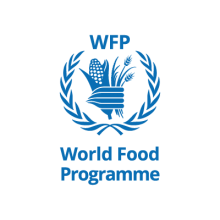
The World Food Programme (WFP) is the world’s largest humanitarian organization, saving lives in emergencies and using food assistance to build a pathway to peace, stability and prosperity for people recovering from conflict, disasters and the impact of climate change.
|
Ready to help countries in:
- Assessing climate risk and vulnerability to support adaptation planning and implementation;
- Sharing knowledge and best practices of other countries in applying adaptation technologies;
- Developing strategies for adaptation through a mix of climate and disaster risk financing and insurance;
- Developing projects and proposals to access climate finance from the GCF and other multilateral or bilateral funding sources;
- Strengthening national forecast and climate information systems to develop early-warning systems that trigger anticipatory humanitarian action;
- Integrating a variety of technologies, services and tools to better equip communities to adapt to the impacts of climate change;
- Engaging multiple stakeholders incl. indigenous peoples, women, youth and the private sector.
Specific expertise includes:
- Adaptation at the humanitarian/development nexus;
- Integrated Climate Risk Management
- Mobilizing food-insecure populations for adaptation action and land rehabilitation;
- Community-based adaptation.
|
|
Mr. Gernot Laganda |
|
WMO
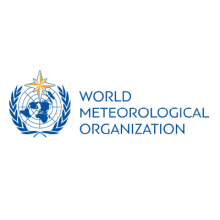
As a specialized agency of the United Nations, WMO is dedicated to international cooperation and coordination on the state and behaviour of the Earth’s atmosphere, its interaction with the land and oceans, the weather and climate it produces, and the resulting distribution of water resources.
|
Ready to help countries in:
- The best available science for adaptation by the provision of evidence based climate information for the past, present and future climate
- Provision of tools, toolkits and methodology for climate data analysis
- Provision of quantitative climate indicators and context specific indices for climate sensitive sectors (agriculture, water, health, energy and disaster risk reduction)
- Capacity development and training the use of climate toolkits
- Provision of a global platform to facilitate the ease of access and standardize climate information for adaptation purposes
Specific expertise includes:
- Analysis of historical data and time series (e.g. Climpact)
- Global platform for climate projection and information
- Regional downscaling models (CORDEX) for climate projection
- Interpretation of the analysed data and indices for adaptation purposes and proposing science-based solutions
- Provision of support through international expert community
|
|
Mr. Amir Delju |
|





